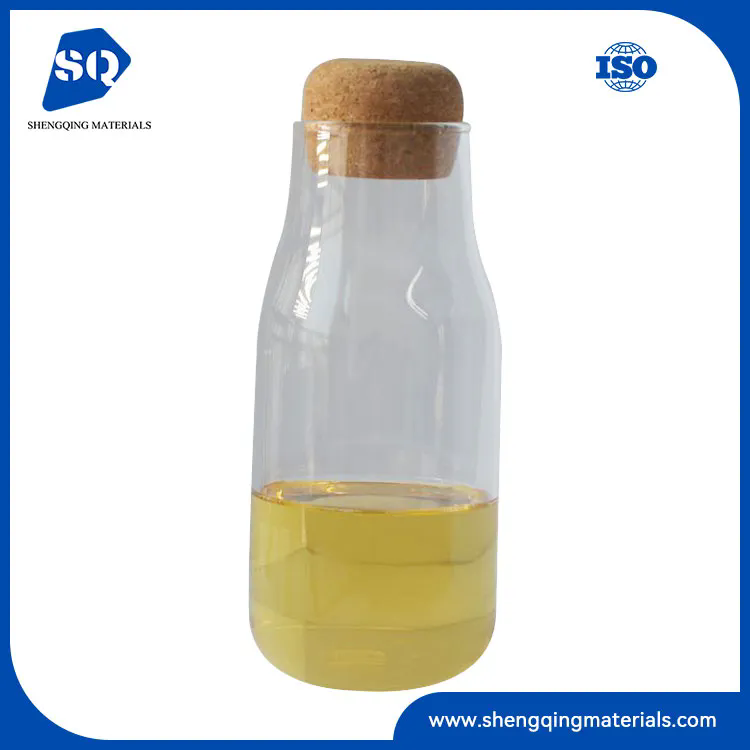Humectant Natural Sodium PCYour Guide to Skin Hydration and Care
2024-11-04
Sodium PCA is a powerful natural humectant that has become a popular ingredient in skincare. Derived from amino acids, it has incredible hydrating properties that make it ideal for various skin types. In this blog, we’ll dive into some frequently asked questions about Sodium PCA, explaining its benefits, uses, and why it’s becoming a must-have in skincare routines.
What is Sodium PCA, and why is it used in skincare?
Sodium PCA (sodium pyrrolidone carboxylic acid) is a naturally occurring humectant derived from amino acids, often found in plants, fruits, and human skin. It’s known for its exceptional moisture-retaining properties, helping the skin stay hydrated and plump. In skincare, Sodium PCA is widely used in moisturizers, serums, and cleansers as it binds water to the skin, making it softer, smoother, and more resilient.
How does Sodium PCA benefit the skin?
Sodium PCA offers multiple benefits for the skin:
- Intense Hydration: As a humectant, it draws water from the environment into the skin, helping to keep it hydrated.
- Skin Barrier Support: By keeping skin moisturized, Sodium PCA helps maintain the skin’s natural barrier, which protects against environmental stressors and dryness.
- Improved Skin Texture: Consistent hydration leads to a smoother and softer skin texture, reducing the appearance of rough patches or fine lines.
- Non-Irritating: It’s generally gentle and safe for sensitive skin, making it suitable for a wide range of skincare products.
Is Sodium PCA safe for all skin types?
Yes, Sodium PCA is considered safe for all skin types, including sensitive skin. Its natural origin and gentle, non-comedogenic properties make it suitable for oily, dry, and combination skin types. However, as with any skincare product, it's wise to conduct a patch test if you have particularly sensitive skin to ensure no irritation occurs.
How does Sodium PCA differ from other humectants like hyaluronic acid or glycerin?
Sodium PCA, hyaluronic acid, and glycerin are all humectants, but they have unique properties:
- Sodium PCIt binds water effectively and has a strong hydrating effect while being lightweight. It’s particularly effective at supporting the skin’s natural moisturizing factor (NMF).
- Hyaluronic Acid: Known for holding up to 1,000 times its weight in water, hyaluronic acid provides intense hydration and is great for plumping the skin.
- Glycerin: A popular humectant, glycerin also draws water into the skin but can feel slightly heavier. It’s great for very dry skin as it forms a bit of an occlusive barrier.
Each humectant has its strengths, and many formulations use a combination of these ingredients for optimal hydration.
Can Sodium PCA help with anti-aging?
Yes, Sodium PCA can support anti-aging efforts by helping to maintain a well-hydrated, plump appearance. When skin is well-hydrated, fine lines and wrinkles appear less prominent, and the overall skin texture is smoother. By attracting and retaining moisture, Sodium PCA contributes to a youthful, radiant complexion and helps protect the skin’s barrier from damage that can lead to premature aging.
How do I use products with Sodium PCA in my skincare routine?
Here’s how you can incorporate Sodium PCA-based products into your routine:
- Cleanser: Look for cleansers with Sodium PCA if you have dry skin; it can help retain moisture even during cleansing.
- Serum: Apply a Sodium PCA serum after cleansing to maximize hydration. Use it on damp skin to enhance its moisture-binding abilities.
- Moisturizer: Many moisturizers contain Sodium PCA, making it easy to lock in hydration and keep your skin soft and supple throughout the day.
Since it’s non-comedogenic and lightweight, Sodium PCA can be used both in morning and evening routines without any issues.
Can Sodium PCA be used with other skincare ingredients?
Yes, Sodium PCA is highly compatible with other skincare ingredients. It works particularly well with:
- Hyaluronic Acid: The combination boosts hydration levels, as both ingredients work to retain moisture.
- Ceramides: Together, they support the skin barrier, improving moisture retention and resilience.
- Vitamin C: Sodium PCA can pair with antioxidants like Vitamin C to provide hydration and protection against environmental damage.
Sodium PCA doesn’t generally cause irritation, so it can be combined with active ingredients, although you should always patch-test when using new combinations.
Are there any side effects or downsides to Sodium PCA?
Sodium PCA is known for being safe, gentle, and well-tolerated by most skin types. Because it’s derived from natural amino acids and mimics the skin’s natural moisturizing factors, it typically doesn’t cause irritation. However, if you have very sensitive skin, a patch test can be useful to rule out any minor reactions.
Can I use Sodium PCA in both my morning and evening skincare routines?
Yes, Sodium PCA can be used in both morning and evening routines. In the morning, it helps keep your skin hydrated and plump throughout the day. In the evening, it assists in nighttime repair, ensuring your skin stays moisturized as it recovers. For best results, apply it on damp skin and follow with a moisturizer to seal in the hydration.
How do I choose a quality product with Sodium PCA?
When selecting a product with Sodium PCA, consider:
- Ingredient Concentration: Check that Sodium PCA appears near the top of the ingredient list for effective hydration benefits.
- Complementary Ingredients: Look for products that include other hydrating or barrier-supporting ingredients like hyaluronic acid, ceramides, or glycerin.
- Product Type: Choose a product type based on your skin type and needs—lightweight serums for oily or combination skin, and richer creams for dry skin.
- Reputable Brand: Choose brands known for quality formulations and transparency in ingredient sourcing.
High-quality Sodium PCA products should have no artificial fragrances or alcohols, which can counteract its hydrating effects.
Can Sodium PCA be used in body care products as well?
Absolutely! Sodium PCA’s hydrating properties make it an excellent ingredient for body lotions, hand creams, and even hair care products. In body lotions, it helps combat dryness and rough skin, making it a great choice for elbows, knees, and other dry areas. For hair, Sodium PCA can help lock in moisture, making it particularly beneficial in conditioners and leave-in treatments.
Where can I find Sodium PCA in skincare products?
Sodium PCA is widely available in various skincare products, including:
- Serums: Hydrating serums for all skin types.
- Moisturizers: Lightweight lotions to richer creams with Sodium PCA for lasting hydration.
- Facial Mists and Toners: These often contain Sodium PCA to add a quick boost of hydration.
- Cleansers: Gentle cleansers with Sodium PCA can cleanse without stripping moisture.
Look for products labeled as hydrating or moisturizing, as Sodium PCA is commonly included in formulations aimed at boosting moisture.
Sodium PCA is a versatile, powerful, and natural humectant that fits well in any skincare routine. Its gentle, effective hydration benefits make it an ideal choice for anyone looking to achieve a glowing, hydrated complexion. Whether used on its own or in combination with other humectants, Sodium PCA is a fantastic addition to skincare for achieving soft, plump, and resilient skin.



